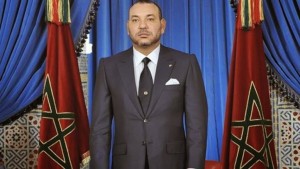Eurasia Review
by Malik Ibrahim
On December 17, 2010, a provincial official in Sidi Bouzid, Tunisia confiscated a merchant’s street cart and sparked one of the most tumultuous eras the Arab world has ever seen. Five years later, the official whose treatment of street vendor Mohamed Bouazizi pushed him to self-immolation has expressed regret, both for her own actions and their catastrophic results for Libya, Egypt, and nations further afield.
Of the Arab Spring countries, only Tunisia has seen a relatively successful transition to democracy. Many of the region’s other political, economic, and cultural centers have transformed into warzones, witnessing a total breakdown of state structures. While Syria, Libya, and Yemen are now entirely failed states, Egypt and Iraq both face strident Islamist insurgencies. Yet more countries, particularly Lebanon, risk being engulfed by wider regional conflicts. Flying under the radar, a few Arab countries have managed to avert a spiraling cycle of protests and state overreaction by answering grassroots action with significant reforms. One of these countries, Morocco, bears closer scrutiny as an example of an Arab monarchy which made key concessions early and preserved its own legitimacy in the process.
In terms of his initial response to the Arab Spring, known in its Moroccan incarnation as the 20 February Movement, Mohammed VI set himself apart from other Arab rulers with a measured approach to demonstrations. Instead of lethal force, Morocco’s shrewd ruler soon offered a new constitution that included greater popular sovereignty (such as prime ministers always being chosen from the largest party) and addressed at least some other key demands.
The minimal repression faced by Moroccan demonstrators stands in stark contrast to other countries and even to Morocco’s own history. Under Mohammed’s father, Hassan II, demonstrations in Casablanca in 1965 were met with violence that allegedly included interior minister Mohammed Oufkir personally spraying protesters with machine gun fire. In the same year that Mohammed VI proposed a constitutional monarchy, Egyptian president Hosni Mubarak unleased pro-government forces in the now-infamous “Battle of the Camel” and the late Colonel Muammar Gaddafi promised he would find civilians in Benghazi “in their closets” (a threat so ominous it prompted a U.N. Security Council resolution almost immediately). Syria’s Bashar al-Assad, meanwhile, pursued a conscious policy of sectarian warfare that has left more than half of his own country’s population either internally or externally displaced. In Morocco, the first of the few deaths linked to protests did not come until over three months after the demonstrations began. The Alaouite dynasty, for its part, studiously avoided the more violent examples of other states in responding to civic demands.
After proposing Morocco’s new constitution in June 2011, Mohammed VI’s political maneuverings compare favorably with the failed transitions seen elsewhere in the region. Leveraging his own personal popularity by encouraging the Moroccan people to embrace the proposed changes, the new constitution passed with 98.5% of the vote the following month. When Abdelilah Benkirane and Morocco’s Islamist Justice and Development Party (PJD) won parliamentary elections in November 2011, the king allowed them to form a government (though not without exercising considerable influence over the formation of the new cabinet).
Instead of the antagonistic relationship that played out between Islamist governments and entrenched factions elsewhere in the Arab world, Morocco’s monarchy has taken pains to avoid accusations of interference while Benkirane’s government has focused “cooperation rather than confrontation,” building up a popular support base with its reputation for clean governance. While many in Morocco and abroad point to the lack of major reforms since 2011 as evidence that real change is yet to come, the PJD’s ability to remain in power and even make gains after four years singles it out as the most successful Islamist party in any of the Arab Spring countries.
While major political reforms only came about after the 2011 protests, Mohammed VI and his ministers had been more diligent about improving economic prospects and generating new opportunities for Moroccan youth. Like other Arab Spring countries, Morocco faces economic issues (like high unemployment) which fed discontent across the region in the years running up to this decade’s revolts.
Since taking the throne in 1999, Mohammed has set himself up as “guardian of the poor” for his efforts to reduce poverty. His reign has seen per capita income rise by 60% since 1999 and the emergence of a burgeoning middle class, although unemployment remains close to 10% and istwice as high among young people. Mohammed VI’s advisors, particularly his American-educated personal secretary Mounir Majidi, have worked since the start of his tenure to leverage the king’s financial clout as a vehicle for economic expansion. As President of SIGER, the firm that manages the monarchy’s business interests and controls Morocco’s National Investment Company (SNI), Majidi turned what was a holding company into an investment portfolio which aims to expand promising industries into “national champions” of a growing economy. The kingdom’s recent embrace of solar power to reduce its dependence on imported fuel has attracted hundreds of millions in international financing, serving as a leading example of prudent investment decisions.
While the new constitution was an important step forward for Morocco, more needs to be done to ensure the frustration behind 2011’s street protests does not explode into wider conflict. Nearly five years after those demonstrations, neither the palace nor the elected government have pushed forward with a fundamental restructuring of the balance of power within the state. While greater commitments to human rights norms and official accountability were made, activists point out they have yet to be put into practice. Nevertheless, Morocco’s limited steps forward are a far cry from the implosion of other states in the region, and today’s Moroccan public may well fear instability and violence abroad far more than at home.
*Malik Ibrahim is a risk analyst currently based in France working for several consultancies on issues relating to political and security risk, primarily in the MENA region.








